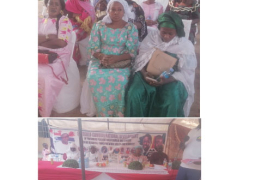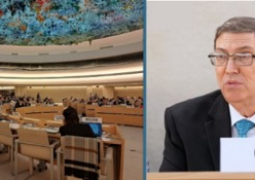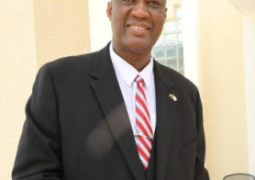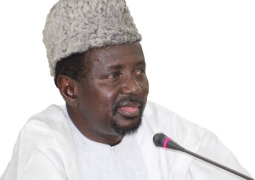
“I left The Gambia believing I was going to find a better life,” Rohey said in an interview with The Point. “But along the way, I almost lost mine.”
Before she left, Rohey lived what she described as a “simple but dignified life.” She ran her own small business selling poultry and fish and helped support her family. Her days were long, but she was content. Then, like many small business owners, everything changed when the COVID-19 pandemic struck.
“The lockdowns destroyed everything,” she recalled. “People were told to stay home, and my business collapsed overnight. No income, no customers, no help. Each day felt like a fight for survival. I watched everything I had worked for fade away.”
It was during that dark time that she began to hear stories of others who had “made it” to Europe, of families receiving money from loved ones abroad, of new beginnings that sounded like miracles. “I felt trapped,” she confessed. “I thought, maybe, if I leave too, I can start again. I knew it was risky, but desperation makes you ignore danger.”
With a small bag and a heart full of hope, she set out on the journey that would change everything.
The Journey of Tears
The sea was not kind. For twelve endless days, Rohey and over a hundred others were crammed into a wooden boat meant for far fewer. The sun burned their skin by day, and cold winds cut through them by night. “We had very little food or water,” she said, her voice trembling. “People fainted. Some cried for help that never came. We were packed like we weren’t human beings. I thought I would never see home again.”
Hunger, thirst, and fear consumed them. Rohey said she watched people collapse from exhaustion. “I prayed every minute for God to save me. At one point, I stopped praying for a better life I prayed just to stay alive.”
When the boat was finally intercepted off the coast of Mauritania, relief was mixed with tragedy. Some of her fellow travelers didn’t survive the ordeal. Others were too weak or sick to continue. “We started the journey as 119 people,” she whispered. “Not all of us came back.”
Lost Dreams and a Second Chance
For nearly a month, she remained stranded in Mauritania, uncertain of what would happen next. “I thought I had left home for a brighter future, but instead I found pain, hunger, and loneliness,” she said. “I remember lying in a hospital bed, too weak to move, thinking was this really worth it?”
It was then that she heard about the International Organization for Migration (IOM) and its voluntary return program for stranded migrants. “When I learned that IOM could help us return home safely, I didn’t hesitate. I realized no dream was worth dying for.”
On December 2, 2020, Rohey finally returned to The Gambia alive, but emotionally scarred. Her family, who had long believed she was gone forever, broke down in tears upon seeing her. “My mother cried and hugged me like she would never let go,” Rohey said softly. “They had lost hope of ever seeing me again.”
Rebuilding from the Ashes
Starting over wasn’t easy. “Some people in the community judged me,” she admitted. “They saw me as someone who failed. But I saw myself as someone who survived.”
With IOM’s support, she received counselling and a small grant to restart her business. Slowly, she began rebuilding her poultry and horticultural garden. “It’s not much, but it’s mine,” she said proudly. “It gives me strength and reminds me that I can make it here, without risking my life.”
Determined to help others avoid the pain she endured, Rohey co-founded a migrant support organization; a network of returnees who visit schools and communities to raise awareness about the dangers of irregular migration. “We share our stories because we don’t want others to go through what we went through,” she explained. “If our voices can save even one life, then our suffering wasn’t in vain.”
From Pain to Purpose
Today, Rohey has turned her trauma into purpose. Her days are filled with caring for her animals, tending her garden, and mentoring young women who dream of a better future. “My goal is to grow my business and employ other young women,” she said. “I want them to see that success is possible right here at home.”
To young people considering the backway, her message is clear and heartfelt: “Don’t do it. The journey is full of pain, fear, and loss. I’ve seen people die with dreams in their eyes. Don’t risk everything for an illusion. You have the strength and creativity to build your own success here.”
A Story of Survival and Hope
Though the emotional scars remain, Rohey says she has found peace in her faith and through the love of her family. “I’ve learned to forgive myself and the past,” she said. “I’ve stopped asking why it happened and started focusing on how I can use my experience to help others.”
Her story is one of endurance and rebirth, a reminder that even after the darkest storms, hope can still rise. “The sea almost took my life,” Rohey whispered, tears welling in her eyes. “But God brought me back for a reason to live, to rebuild, and to tell others that our future is still here, in The Gambia.”





